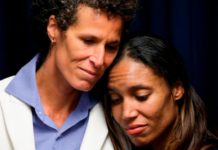Lucas and Santiago Richard, 16-year-old twins who started a diversity discussion group at their school in Miami, take on racism by aiming to inspire empathy. “We try to bring to light the gravity of what they are saying,” said Santiago, “because a lot of times people think it’s just a joke.” Lucas added that he or his brother will sometimes respond to an offensive remark with, “Imagine if you were the person facing these comments.”
Michael Gary, age 18, works against racism by maintaining ties to people with whom he doesn’t see eye to eye. “As a friend, you have a unique opportunity to be a bridge-builder.” He feels that it’s important to cultivate a caring relationship because, “if you don’t feel cared about, you’re going to feel unsafe. And if you don’t feel safe, you’re not going to be able to accept new ideas or genuinely hear new perspectives.”
Today’s teenagers also address racism online, which comes with its own advantages. “In person, it can be hard to say something because you’re so stunned,” said Ms. Sofola, “but online you can type and revise. You have time to think about it and get your facts straight.” According to Ms. Bown, ready access to information creates social pressure to be well-informed. “It’s easy to call people out who say, ‘Well, I didn’t know,’ because you can point them in the right direction.”
When it comes time to mobilize forces on behalf of social justice, teenagers often move quickly and deftly. This can range from “canceling” — mass unfollowing — an online influencer who has done something they consider to be irredeemable, to organizing sizable protests. In early June, six Nashville teenagers took less than a week to coordinate a huge, peaceful demonstration against police brutality.
Similarly, a group of teenagers in Washington State created a “Defund Seattle PD” Instagram account that garnered more than 16,000 followers in its first month. According to Mr. Gary, one of that campaign’s organizers, their online efforts resulted in more than 1,000 emails being sent to the mayor and the City Council in the days leading up to Seattle Mayor Jenny Durkan’s executive order requiring Seattle police officers to activate their body cameras during protests.
Source : Nytimes














